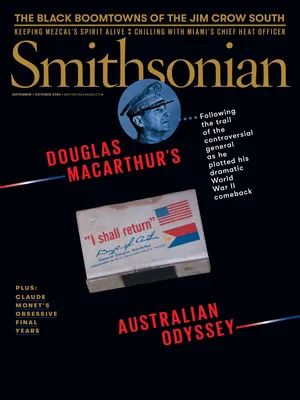How Did British Politicians React to America’s Attempts at Independence? Rather Poorly!
When the Colonies got too brassy, the English Parliament went ballistic—despite some wise voices of reason
:focal(3360x2240:3361x2241)/https://tf-cmsv2-smithsonianmag-media.s3.amazonaws.com/filer_public/f7/e2/f7e2f421-7ab4-41dc-8e2d-c9812c7b172b/wigs_sidebar.jpg)
As Alexis Coe writes in her history of the First Continental Congress, today, George III is “remembered as the man who lost America. Really, Parliament deserves that honor.” Below, read how four members of Parliament responded to the colonies’ early steps toward revolution.
The Judge
William Murray served as lord chief justice—head of the judiciary of England and Wales—from 1756 to 1788, becoming one of Britain’s most influential lawmen. He advocated heavily for England’s control over the American Colonies, often in uncompromising terms: “If you do not kill them, they will kill you.” John Quincy Adams would later deem Murray “more responsible for the Revolution than any other man,” and Thomas Jefferson called the judge’s decisions full of “sly poison.” Still, Murray’s philosophy of jurisprudence inspired many fundamental principles of U.S. commercial law: He’s been cited in over 300 U.S. Supreme Court opinions.
The Conciliator
William Legge, the Second Earl of Dartmouth, twice led the House of Lords’ Board of Trade and Foreign Plantations before becoming Britain’s secretary of state for the Colonies. Early on, he opposed the Stamp Act in favor of negotiation and was sufficiently popular that when he arrived in the Colonies in 1773, Phillis Wheatley composed a poem in his honor. But after the Boston Tea Party, Legge changed his tune, calling for the Colonies’ suppression by whatever forceful means necessary. Still, Legge was unwilling to wage war against the Americans and resigned in 1775. Today, he remains a figure of honor in the U.S., perhaps nowhere more than at the college that bears his name: Dartmouth.
The Honorable Patriot
Isaac Barré, elected to Parliament in 1761, is proof that not all Englanders were anti-American. Barré passionately argued against the “odious” Stamp Act, telling his fellow parliamentarians, “We are the mother country, let us be cautious not to get the name of stepmother.” In the same speech, Barré coined a now-familiar moniker for the colonists, saying that British misrule had “caused the blood of those Sons of Liberty to recoil within them.”
The Troublemaker
John Wilkes had a tumultuous career in Parliament, often irking the establishment. In his newspaper, the satirical journalist wrote and printed attacks on legislators, royal advisers and even the king himself, after which Wilkes was arrested—and became a symbol of resistance to tyranny. Expelled from Parliament, and convicted of libel in 1764, Wilkes fled to France, returned to England and was re-elected twice—once from a jail cell. In 1768, Wilkes stood in opposition to the Townshend Acts, which imposed taxes on imports to the Thirteen Colonies—including tea—and became an inspiration in the eyes of American patriots.
/https://tf-cmsv2-smithsonianmag-media.s3.amazonaws.com/accounts/headshot/Sonja_headshot.png)

/https://tf-cmsv2-smithsonianmag-media.s3.amazonaws.com/accounts/headshot/Sonja_headshot.png)